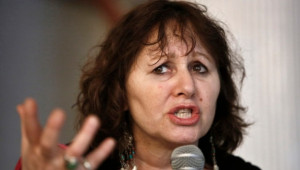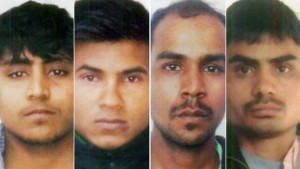BBC goes ahead with screening of ‘India’ Daughter’
Director of ‘India’s Daughter’ Leslee Udwin
The controversial Nirbhaya documentary based on the 2012 Delhi gangrape ”˜India’s Daughter’ is scheduled to be aired on British Broadcasting Corporation (BBC) in United Kingdom (UK) on Thursday night. The film has drawn controversy and opposition with police securing a court injunction blocking its broadcas in India.
Based on the brutal rape in December 2012 of 23-year-old physiotherapy student Jyoti Singh, Leslee Udwin’s documentary includes interviews with one of the men convicted for the crime, who is now in prison in Delhi and waiting for the supreme court to hear his appeal against the death sentence.
Udwin in a press conference has made an emotional plea to PM Modi ‘“to deal with this unceremonious silencing of the film” in India.
Celebrated Bollywood lyricist Javed Akhtar, who said: “It is good that this film was made; it will reveal how many men think like Nirbhaya’s rapist.” Nirbhaya, meaning “fearless”, is the name given to Jyoti Singh in India to conceal her real identity.
Mukesh Singh (3rd from left)
In the film, Mukesh Singh suggests his victim would not have been killed if she had not fought back against her attackers. He appears to blame her for not behaving like “a decent girl”.
Home Minister Rajnath Singh had on Wednesday asked BBC, the Ministry of External Affairs and the Information and Broadcasting Ministry to ensure that the documentary is not broadcast anywhere in the world. A Delhi court has restrained broadcast of the documentary in India until further orders in which Singh is blaming girls for rape.
Singh also summoned Delhi Police Commissioner BS Bassi, Tihar Jail DC Alok Kumar Verma to get a better insight into the matter. He convened a meeting of top officials including Delhi Lieutenant Governor Dr Najeeb Jung and police on the December 16 gangrape-cum-murder documentary shoot.
The Home Ministry is planning legal action against British filmmaker Leslee Udwin for interviewing Singh within the premises of Tihar Jail and for allegedly violating stipulated conditions in the permit that was granted to her.
Leslee, however, claimed that she had the required permission to shoot the interview from Home Ministry and Tihar Jail authorities.
The letter giving consent for the interview is dated July 24, 2013, when the UPA was in power and Sushil Kumar Shinde was the home minister. The letter said the ministry has no objection to the interview provided that written consent is obtained from each of the convicts interviewed.
Then joint secretary of the Home Ministry wrote to the then Director General of Prisons Vimla Mehra, granting permission to Leslee Udwin to interview some convicts.
Earlier in the day, Singh had clarified in Parliament that terms and conditions for the shooting were violated. He said that a restraining order had been obtained against the screening, but opposition members questioned the move.
He said, “The condition was given to shoot the interview for social purpose and not for commercial use. A legal notice was issued to them when the jail authorities came to know that it violated the conditions. The permission to shoot the documentary was given with conditions.”
He assured the House that the government will not allow the telecast of the documentary. He said, “The government condemns December 16 incident. We will not allow any group or individual to use the incident for any commercial use. The government is committed to dignity and security of women.”
Minister of State for I&B Rajyavardhan Singh Rathore said, “The airing of documentary would be contempt of court. This entire documentary is against the programming code of I&B ministry. Language seems to incite violence against women, and instils fear.”
Short URL: https://indiandownunder.com.au/?p=4501


